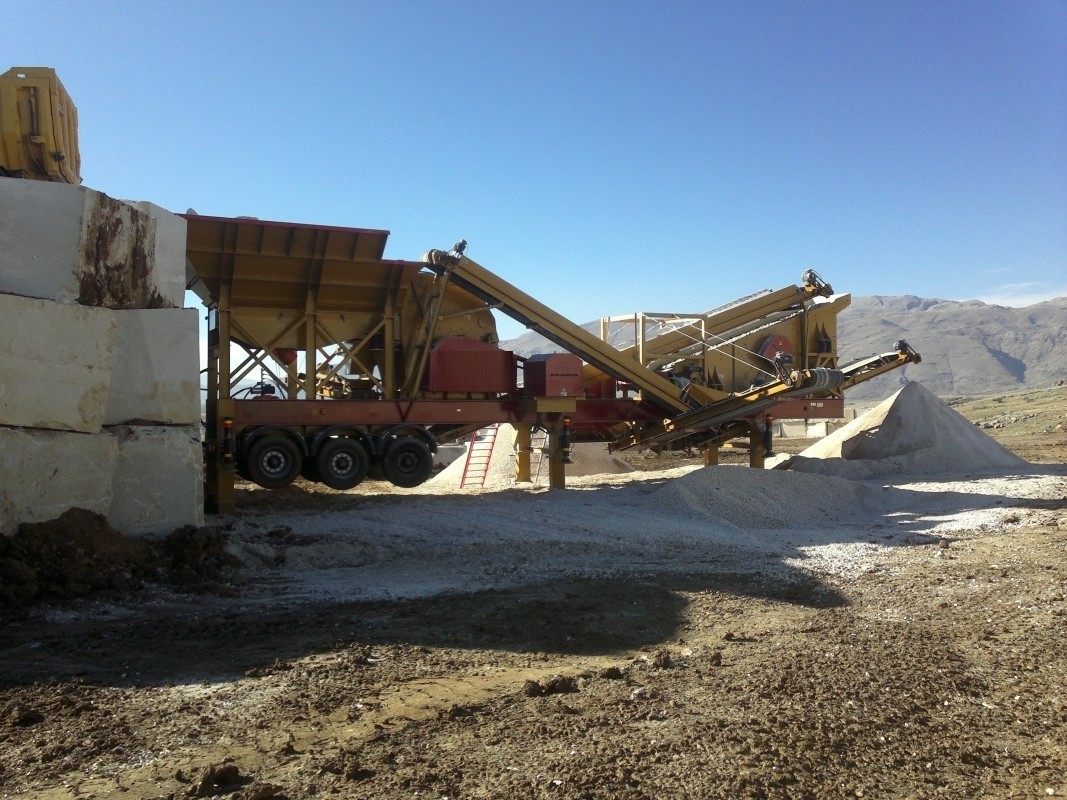Portable crusher plants are indispensable machines in today’s mining, construction, and infrastructure industries. Unlike fixed crushing facilities, these systems offer mobility and adaptability for different environments and projects. This text provides a comprehensive overview of the portable crusher manufacturing process, technical details, benefits, and application areas.
1. Definition and Primary Function
A portable crusher (mobile crushing plant) is a mobile system designed to break down large materials such as stones, rocks, or concrete from quarries or construction sites into smaller, usable fractions. Its main purpose is to produce aggregate materials suitable for construction use.
2. Manufacturing Process
a. Design and Engineering
Production starts with a technical analysis based on client needs. The type of crusher (jaw, impact, cone, etc.), capacity expectations, energy efficiency, and portability level are determined.
b. Chassis and Mobile Frame Fabrication
The chassis is the core structure that supports the entire plant. It is typically built from high-strength steel to endure heavy loads. Depending on mobility needs, the unit may be wheel-mounted or track-mounted.
c. Crusher Unit Installation
The selected crusher is assembled along with vibrating feeders, conveyor belts, and screening units. Most components are foldable via hydraulic systems for ease of transport.
d. Electrical and Automation Systems
Power can come from diesel generators or grid electricity. Automation systems (PLC-based) allow remote operation and monitoring.
3. Technical Specifications
-
Capacity: Ranges from 50 to 500 tons/hour
-
Crusher Types: Jaw crusher, impact crusher, cone crusher
-
Chassis Type: Track-mounted or wheeled
-
Power Supply: Diesel generator or electric motor
-
Automation: Remote-controlled, PLC-based system
4. Applications
-
Road and infrastructure projects
-
Mining and quarrying sites
-
Recycling plants (e.g., concrete, asphalt)
-
Dam and large-scale construction projects
-
Emergency response operations in disaster areas
5. Advantages
-
Mobility: Quick setup and relocation across various sites
-
Time Efficiency: No need for fixed plant installation
-
Cost-Effective: Lower transportation and installation costs
-
Eco-Friendly: Reduced energy use and environmental impact
-
Flexibility: Compatible with various crusher types
6. Global Market and Competition
The global market for portable crushing plants is expanding rapidly, especially in developing countries with rising infrastructure demands. Manufacturers from Turkey, Europe, and the Middle East have gained a significant presence in the international arena with their high-quality mobile crushing and screening systems.
 English
English
 Le français
Le français
 Türkçe
Türkçe

